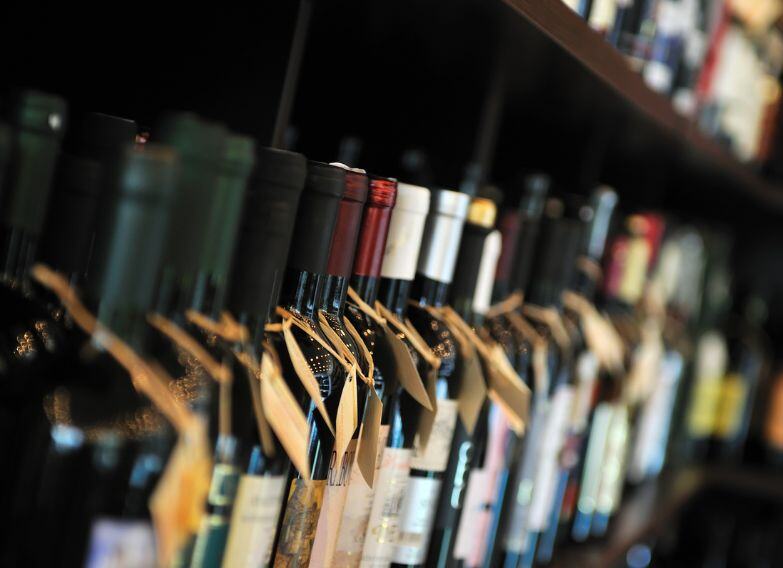In the past, the complications of shipping alcohol products made it prohibitive for small brands to sell across borders.
But, thanks to innovative apps (like Tipple) that help you comply with each country’s alcohol sales regulations, global expansion is no longer the sole domain of megabrands like Diageo. Any mom-and-pop can get in on the action and start selling alcohol online.
You’ll still need to research the laws regarding selling liquor in each location where you want to ship your products. But following these six steps below and partnering with an innovative order fulfilment partner, you’ll soon be marketing, selling, and shipping your exciting alcohol offering to every corner of the globe.
1. Know the alcohol sales laws in each locality
As a controlled substance in every country, selling alcohol online entails finding and following strict rules. For every country in which you sell, you need to identify the local laws surrounding alcohol sales, the legal drinking age, and alcohol sales tax compliance.
Depending on how your alcohol business is structured, you may need some of the following licences to legally sell alcohol:
-
Manufacturing license: This type of liquor license gives you permission to manufacture your own alcohol products and sell them commercially. If you’re brewing alcohol for private consumption, you won’t need a manufacturer’s license. But if you intend to sell your product, you must obtain one.
-
Employer identification number (EIN), federal tax ID (FTID), or local equivalent: Opening any business will require you to register that business with your local and national authorities. Plus, you’ll need an EIN or FTID to open bank accounts, track and pay taxes, hire employees, etc.
-
An eCommerce business license: In some places, including certain states in the US, a permit is required specifically for eCommerce businesses. These help clarify to which government your primary taxes are due.
-
A shipping license: A shipping license is required when shipping from state to state within the US or between countries in certain localities. This helps authorities keep track of which companies are selling to whom.
-
A retail license: Separate from an eCommerce license, you may also need a retail license. You will probably need a retail license if you have a brick-and-mortar liquor store, but if your alcohol business is an eCommerce liquor store only, you might not need one.
Selling online is complicated in the US, where there are a variety of state and federal laws regulating the sale and delivery of alcohol. If you’re interested in reading about the different eCommerce alcohol and delivery laws by state, you can find an exhaustive list of the rules here.
Shipping alcohol products direct to consumers (DTC) in Europe, South America, and Africa is far simpler than selling within the US (especially when you work with an all-in-one solution like Tipple). Because of the complexity, smaller brands often focus on markets outside the US.
2. Find your product’s market niche
Like any product, finding your alcohol brand’s niche in the market is vital to building a successful online liquor store.
Start broad by determining whether you’ll focus on selling beer, wine, or spirits. Market research is a great way to determine whether the alcoholic drinks you intend to sell will be well received by the market you plan to sell to. Market research can also help you decide on your ideal audience and price point and help hone your brand messaging.
As you consider your market niche, you’ll naturally converge on one or two unique selling points (USPs).
These are features of your product that set it apart from the competition. They may be specific to your product, like a unique flavour combination in your gin recipe, or they might pertain to your business, like being a family-run enterprise with three generations of family members involved.
Whatever makes your alcohol brand or product special is the same feature that will make it exciting to your ideal audience, so it’s worth thinking about your alcoholic beverages and the consumer who will be most interested in drinking them.
3. Build your brand
With your market research, USPs, and ideal customer personas in hand, it’s time to build your brand.
Branding your online liquor store or alcohol product means creating graphics, colour schemes, online content, and messaging that will communicate your company’s values and resonate with your target audience.
A good place to start is to identify your company values. These are different from the USPs you stated above. Your company values tell customers what they can expect from interactions with your brand, like exceptional customer service, dedication to a superior alcohol product, and respect for the ingredients you use.
Consumers, especially young consumers, are increasingly conscious of a company’s values. They cite company values as a solid reason to purchase from a company and return to an online store for future purchases. So ensure you honestly evaluate your values and communicate them clearly.
While we’re on the subject of clear communication, your online alcohol company’s messaging is an integral part of your brand.
Conduct keyword research on the terms your ideal audience uses to search for alcohol online. Check out the competition selling alcohol online to see how they talk about their products. Then, develop language that suits your brand personality and communicates its values.
Graphic elements of your brand, like a logo, colour scheme, and photography, should take their cue from your market niche. Think about the colours and images that will appeal to your customers.
Develop graphics that complement your brand personality. And whatever you do, stay consistent! Stick to one colour scheme, decide on one logo, and work with a product photographer who understands your company’s branding goals.
4. Create an eCommerce store
Before you can start marketing your alcohol and selling your liquor, you’ll need to develop an online store that supports online alcohol sales.
Most eCommerce brands, especially small ones, use a dedicated eCommerce platform like BigCommerce or Shopify or opt for a WordPress website that integrates with an eCommerce plugin like WooCommerce.
Whichever you choose, you’ll want to design a website that incorporates all of the branding elements described above.
You’ll also need to create a purchasing journey free of snags, allowing website visitors to find what they want on your site and complete their purchase without hassle.
5. Start marketing
The next major step is to develop a marketing strategy that drives traffic to your online store, allowing you to start selling alcohol online.
Online liquor stores without a coordinated marketing strategy look haphazard - and that’s not a look that inspires consumer trust.
You can avoid the pitfalls of less polished online liquor stores by sharing your brand persona with audiences via social media. Though most platforms have strict guidelines about promoting alcoholic beverages on their site, many alcohol brands use influencer marketing to circumvent the rules and reach an influencer’s loyal followers.
You can create lead magnets like ebooks or explainer videos that draw visitors to your website. These lead magnets are usually gated, meaning that a user must share their name and email address to access the content.
As you gather leads from visitors to your website, you can start a mailing list of potential customers (asssuming they’ve provided permission to use their email addresses for marketing purposes).
As your relationship with your customers grows, you can also ask for their mobile number to offer exclusive deals via SMS messaging.
But your marketing shouldn’t all be digital!
Don’t forget to stage tasting events and attend trade shows in your market locations. Digital marketing is revolutionary, but there’s still no replacement for a face-to-face meeting.
6. Find a shipping solution
An excellent shipping and order fulfilment partner will make it a cinch to sell alcohol online.
If you plan to sell across international borders, tax compliance and clearing customs can become a nightmare without a knowledgeable partner. And if you don’t trust your shipping and delivery company, you could be dealing with broken or lost shipments that are expensive to replace and damage your reputation with customers.
But an airtight logistics solution makes it simple to sell liquor online. When your online liquor store integrates seamlessly with your partner’s software, every piece of the order fulfilment puzzle falls into place.
At Tipple, we make it a breeze to sell alcohol online in Europe by handling every aspect of order fulfilment, from tax compliance to pick-and-pack to shipping and delivery.
Our software integrates with your eCommerce platform, so stock numbers and order notifications are always accurate and up-to-date. We offer bonded warehouses for storing your products and work with professional shipping companies to ensure customers have a stellar delivery experience. Sign up for Tipple now to see if it’s the right fit to bring your beer, wine, or spirit to the European market.
Next steps to start selling alcohol online
If you only take three actions towards selling your alcohol products online this week, these are the three we suggest:
-
Identify your ideal customer and their market: Block 4 hours on your calendar tomorrow to create buyer personas for your ideal consumer. Then, identify the marketing channels that will get their attention. If you have a little spare time at the end, start to sketch out a marketing calendar for the type of marketing content you’d like to create and post over the next 12 months.
-
Build an eCommerce store: If you don’t have a website, now’s the time to build one. Services like Shopify and WooCommerce (linked above) make it easy to build one quickly. If you have a website already, make sure it enables cross-border alcohol sales. You’ll need that feature sooner than you think!
-
Figure out shipping: Start researching shipping companies and find three good prospects who offer 1) a comprehensive solution including warehousing, pick-and-pack, shipping, and delivery; 2) tax and customs support so you can assign those tasks to third party who knows how to handle them; and, 3) direct experience working in the alcohol industry.






